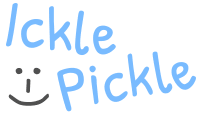Thankfully my teens have never suffered from full-blown acne, but it is a common condition among teenagers and often a cause for embarrassment. You need to take the feelings of your teens seriously, as studies have shown the development of acne can cause low esteem and depression. Read on for full info on the causes, and treatments available for acne….
Causes Of Acne In Teens
Hormonal Stimulation
During puberty, there is an increase of androgen hormones in both girls and boys. Androgens
cause the oil glands to become larger, making excess sebum, which can result in acne. Also,
certain drugs, especially those that contain lithium, corticosteroids, and androgens, can affect
sebum production.
Excessive Oil Or Sebum Production
The areas typically affected by acne are the forehead, face, shoulders, chest, and upper back.
They have numerous oil glands, and hair follicles connect to these glands. These glands produce
sebum that lubricates the hair, but hormones can stimulate them to produce too much. This
excess oil can mix with dead skin cells and bacteria and then clog the pores, eventually leading to
acne.
A Build Up Of Bacteria
Blocked hair follicles can get bacterial contamination, and become swollen. The inflammation may
go deep inside the follicles and create lumps that look like cysts beneath the skin. The follicle may
bulge out from the skin and form a whitehead, or the pores get clogged but remain open to the
surface of the skin, producing a blackhead.
How To Manage Teenage Acne
*Change your pillow regularly.
*Wash affected areas twice daily with a gentle cleanser that contains benzoyl peroxide as
the main active ingredient. After washing, rinse the skin with lukewarm water.
*After rinsing, treat with a product that contains adapalene. Adapalene prevents new
breakouts, and it also unclogs pores. Avoid easily irritated areas such as the eyes and
mouth.
*Avoid facial masks, scrubs, and astringents. They can irritate the skin and worsen acne.
*Do not pick, pop, or touch the affected areas. It can cause scarring and can also lead to
infections.
*For teens with oily hair or those with acne around the hairline, use shampoo every day.
*Shower after body movement activities that cause oil and sweat production, such as
physical exercises.
*Treat acne early. Early treatment reduces scars, and it is also easy to manage a few
pimples rather than a breakout.
*Always protect your skin from the sun. Exposure to the sun can worsen acne, and some
medications make the skin more susceptible to sunlight. When you are planning to be in
the sun, apply a non-oily moisturiser with sunscreen.
*Avoid an excessive amount of cosmetics as they can clog pores and cause acne to worsen. Use non-comedogenic makeup and always wash it off at night.
Treatment Of Teen Acne
The magnitude of the problem determines the type of acne treatment. Most prescription drugs,
creams and gel contain benzoyl peroxide, the best main active ingredient in acne treatment.
Benzoyl peroxide contains antibacterial properties and also reduces oil production. Another
common ingredient in acne treatments is salicylic acid. It corrects any abnormal slow rate of the
skin shedding, thereby unclogging pores and preventing acne lesions. However, it cannot kill
bacteria, and that’s why it’s combined with benzoyl peroxide.
*Sulfur, resorcinol, prescription antibiotics, and retinoids can be applied on the skin surface
of the affected areas. They reduce inflamed pustules, whiteheads, and blackheads.
*An oral antibiotic is taken in cases where cysts and pustules have appeared on the face
and upper body. To decrease the size of cysts, doctors can sometimes inject it with anti-
inflammatory steroid solutions.
*Antibiotics can treat persistent acne by either applying to the skin or taking them by
mouth. Some acne medications contain both anti-inflammatory and antibacterial properties. But they should be only be taken with a prescription.
*A hormone blocker such as spironolactone is suitable for teen girls who have acne.
*Medication like isotretinoin can help control severe acne and is taken orally but can’t be
taken by pregnant women.
I hope this information will be useful in helping your teenager deal with acne, please remember to always consult your doctor.
![]()



